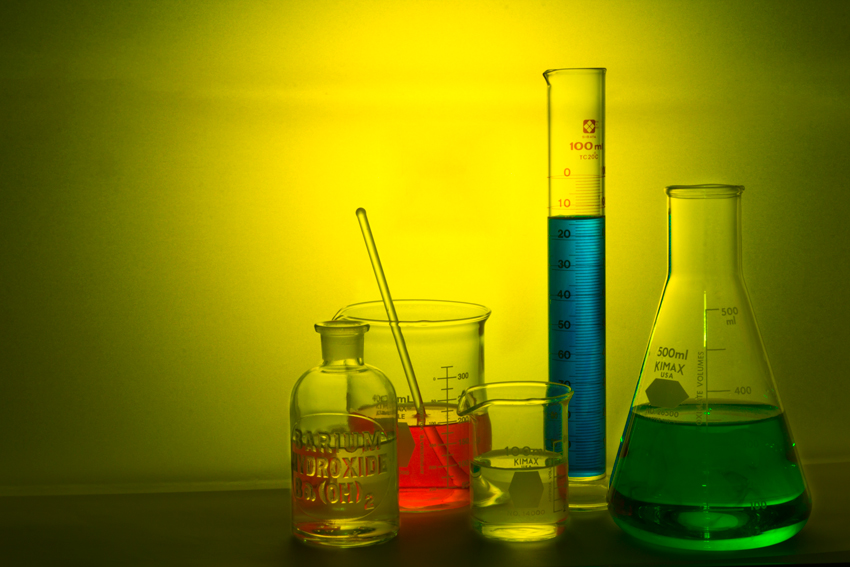Key Stage 3
Key Stage 3 Chemistry
By its very nature everything around us is chemistry in motion and KS3 pupils begin their journey into chemistry by exploring the reactivity of elements and how they change to form new substances. The business of chemistry transforms the natural raw materials of the earth, sea and air into all of the products that we use in modern life and our KS3 chemists consider the principles of green chemistry that allow economic and environmental progress to proceed in harmony. This includes some important ideas on recycling and pollution. There are frequent practical lessons to investigate the wonder of chemistry first hand as well as a bank of interactive WebQuest activities which pupils can access in school and at home.
Practical work forms an integral part of the Chemistry course at BHS and all experiments, whether class practical or teacher demonstration, are carried out in accordance with the policies stated in the Department Health & Safety Policy herein. An analysis of the hazards associated with each practical and demonstration has been carried out in accordance with information supplied by CLEAPSS.
The Chemistry course for the first three years is delivered as part of the schools Junior Science scheme in accordance with the NI Revised Curriculum at Key Stage 3. All Chemistry staff teach some Junior Science classes. At the end of Year 10, many pupils choose to study GCSE Chemistry.
Year 8 Chemistry (3 periods per week)
The year begins with a study of safe practice and associated hazards in the laboratory which leads into investigations of the effect of heating substances. As the year progresses the concepts of Atoms, Elements and Compounds are explored. This topic includes a Cross Curricular Assessment Task on Using Mathematics. The final chemistry topic is about mixtures and includes some introductory work on separating techniques. There are two examinations in this year. The first is at the start of the Spring term in January and the second is towards the end of the Summer Term. These examinations will begin the collection of information used in part to inform pupils on the choice of GCSE courses. There are tests at the end of each topic.
Year 9 Chemistry (3 periods per week)
The initial topic will look at air as a mixture of gases which leads into the biology topic of breathing and respiration. The next chemistry section is called Metals and Reactivity Series and explores the reactivity series of metals through experiment and provides a key link between KS2 science and future areas of study across the Chemistry curriculum. Pupils consider the reactions of Acids, Bases and Salts in the final chemistry topic of the year. There are two examinations in this year. The first is at the start of the Spring term in January and the second is towards the end of the Summer Term. There are tests at the end of each topic. These assessments will help inform pupils of their strengths and areas for development in the subject.
Year 10 Chemistry (3 periods per week)
The year begins with a study of the structure of the atom and the formation of ions. The concept of Molecules is introduced next followed by a topic concerning the central position that the Periodic Table holds in chemistry and its usefulness in identifying patterns and trends. The year concludes with topics on writing Chemical Formulae and equations as the vocabulary and language of chemists. There are two examinations in this year. The first is at the start of the Spring term in January and the second is towards the end of the Summer Term. There are tests at the end of each topic. These assessments will continue the collection of information used in part to inform pupils on the choice of GCSE courses.

